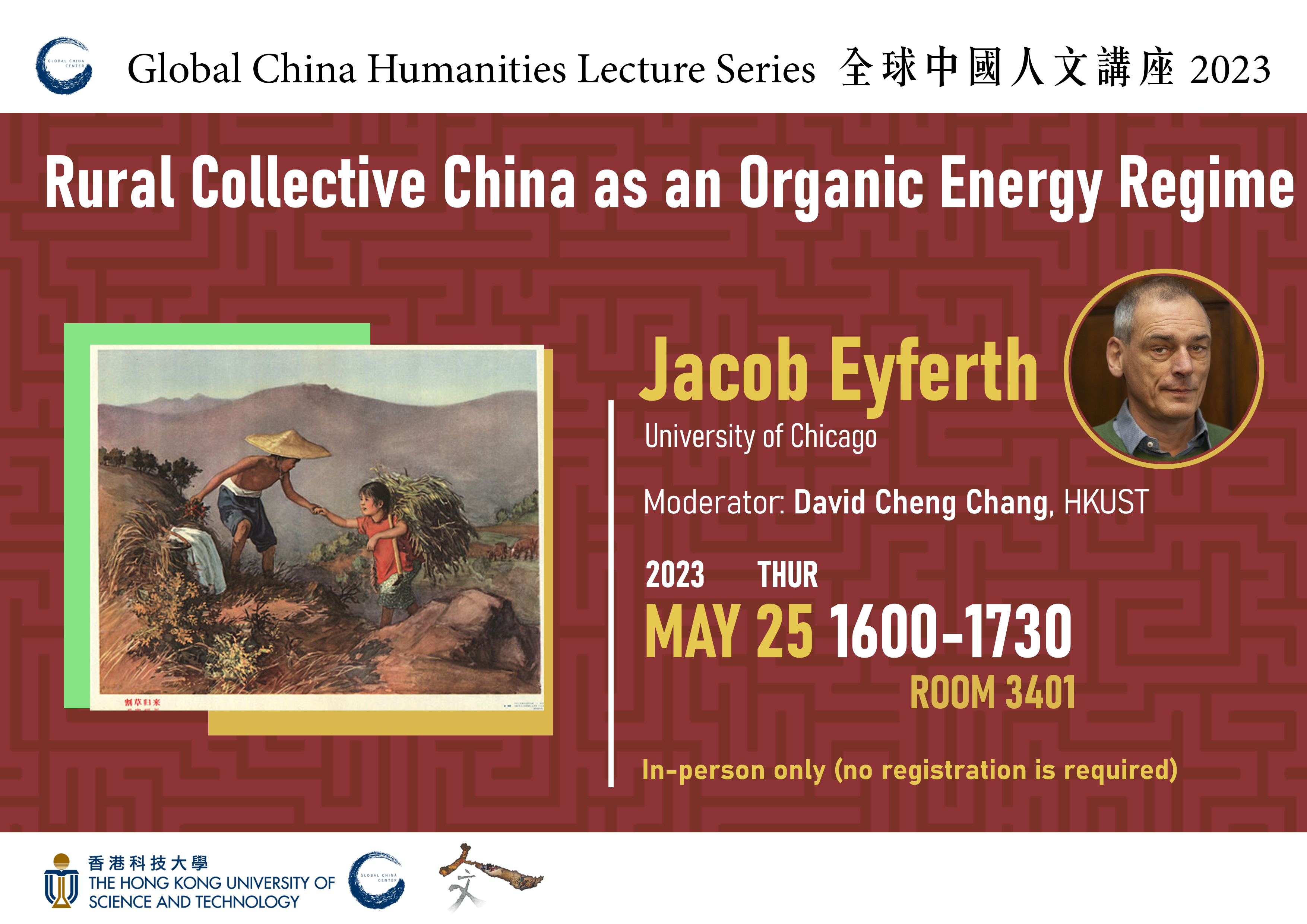Rural Collective China as an Organic Energy Regime
Speaker: Jacob Eyferth, University of Chicago
Moderator: David Cheng Chang, HKUST
Date: May 25 (Thursday)
Time: 16:00-17:30
Venue: Room 3401

Abstract:
The Maoist development model relied on labor mobilization in agriculture and infrastructure construction, and on non-equivalent exchange between the agricultural and industrial sectors. Throughout the Mao years, the countryside received few modern inputs. Most labor was performed by human and animal muscle rather than by machines. Most fertilizer was organic, laboriously collected and composted from human and animal excrement and other organic matter. Most heating in rural households came from crop residues or firewood collected in the hills. At the same time, the urban-industrial sector transitioned from an organic to a fossil-fuel energy regime, powered by coal and petrol. For about two decades, the government expected the rural-agrarian sector to expand at the same pace as the urban-industrial sector, despite the fact that the countryside had little access to output-boosting fossil fuels. This led, on the one hand, to a rural energy crisis, as the same limited resources of land and organic matter were needed to meet conflicting demands for fuel, fodder, compost, etc. and, on the other hand, to labor intensification at the household level, as women and children were mobilized to fill the gaps resulting from extraction.
Bio:
Jacob Eyferth is a social historian of China with research interests in the life and work experience of non-elite people throughout the twentieth century. Most of his work has focused on the countryside and on the mid-twentieth century, c. 1920-1970. His first book, Eating Rice from Bamboo Roots, is an ethnographic history of a community of rural papermakers in Sichuan. He is currently working on a second book, tentatively titled Cotton, Gender, and Revolution in Twentieth-Century China, that uses cloth and clothing as a lens through which to analyze how the monumental changes of the twentieth century – revolution, collectivization, industrialization, etc. – transformed the lives of rural women.